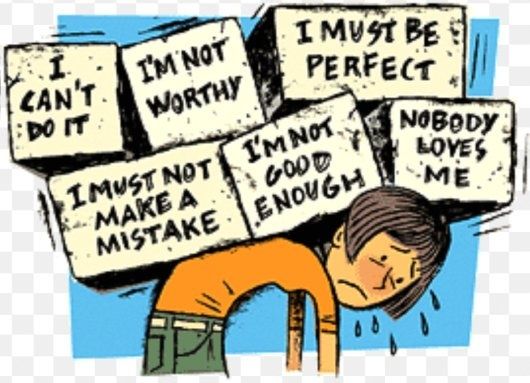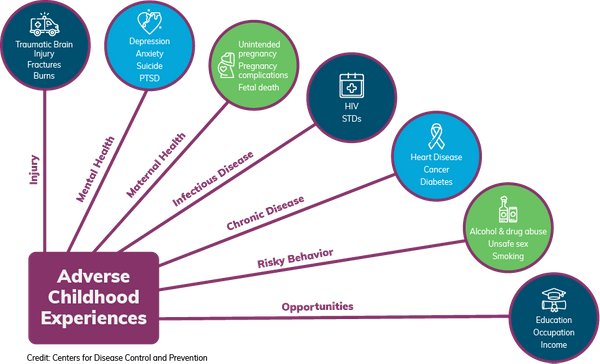We can no longer turn a blind eye. The cost is tremendous and tragic on an individual, relational and societal level. Trauma surely has been a word popping up a lot in our culture these days. All over social media, podcasts, revelations by celebrities, trauma this and trauma that. It has been used so much that I wonder if we have lost touch with what a trauma really is.

4 Ways to Know if Trauma is Impacting Your Life
What is trauma? And what are the costs of not addressing what happened to us? Read on for reflections from an Austin and Amherst trauma therapist.

So, what is trauma?
Trauma comes from the Greek word, “wound”. And it is generally defined as an emotional response to neglect, stress, abuse and violence that impairs our sense of safety and has a long lasting impact on a person’s life.
And I make a major, major distinction between what I call shock trauma and complex trauma. Shock trauma is usually a single incident experience like a car crash, medical complication, sexual assault or a death in the family.
Complex trauma is the experience of neglect and/or abuse that is chronic in nature and is interpersonal in nature (often with a parent or caregiver).
Basically, the neglect or abuse we endured as children. It is the hour by hour, day by day, week in week out stress of a raging/alcoholic father, the deep feeling of being alone with an absent mother, the relentless criticism. All of this has a monumental impact on our sense of self and our relationships in our adult years.
So, how so? Here are my top four ways complex trauma has a negative impact on our health and wellbeing as adults.

- 1. Shame. Yes, shame. I start with this one because it’s a biggie. Man, oh man, do I wish that adults living now with high stress, anxiety and depression could have known as children: “You know what, I am still a GOOD person in a really bad situation.” I often say that I would be out of business as a therapist if children somehow remembered their goodness in the face of abuse and neglect. But the sad reality is that children feel that it is their fault and feel the need to take on the failure of their environment as their own.
- The real long lasting tragedy of abuse and neglect is not so much what happened to us (as much as it was horrible and unjust!), but how we treat ourselves as we age. Lurking below is this sense that we are bad and undeserving. It can range from mild self-criticism to outright self-hatred. Punishing and rejecting ourselves today as adults is a vestige of the self-shame we formed as children.
- Shame shapes our lives as we respond to present moments through the lens of the past. And often in ways that result from shame based learnings formed long ago: “I don’t deserve love.” “If you got to know me, you would leave.” “I am not enough.” “I need to be perfect to be accepted.” “Vulnerability is a weakness and will lead to betrayal.” All beliefs that limit and narrow our lives. It dims our light and doesn’t allow for the full and true expression of who we really are and doesn't allow us to fully show up in relationship.
So yes, the shame that developed in us as children has an enormous impact on our wellbeing, happiness and fulfillment as adults.
- We stay in relationships even though we know they are toxic.
- We have difficulty asking for what we need and as a result feel unfulfilled.
- We put an unneeded amount of pressure on ourselves.
- We avoid conflict or are overly pleasing.
- Vulnerability and intimacy feel threatening.
And now we feel lonely, scared, anxious, overwhelmed, burdened and depressed. All examples of the long arm of unresolved childhood trauma.
Working with an online trauma therapist can be a great way to disidentify with shame based beliefs and experience more connection, aliveness and passion.

2. The impact on our physical health. The ACES study in 1979 is perhaps one of the most impactful in the last 46 years. It drew a direct line between complex trauma and a myriad of physical health issues. And this list is long: Shortened life expectancy, heart disease, diabetes, compromised immune system and cancer among many others.
The stress we experienced as children and then into our adulthood can lead to INFLAMATION which has a very large negative impact on our physical health.
Is it possible that high blood pressure can be tied to the amount of pressure we have been putting on ourselves for as long as we can remember? I bet there is.
There is scientific research linking loneliness and heart disease. Dying from a lonely heart is not just cliche. Having difficulty creating and sustaining fulfilling relationships just didn’t fall from the sky. It is very likely forged during early childhood: “Don’t trust others,” “Connection is threatening.”
We are absolutely hardwired to connect with one another as human beings. When we don't, the world can feel unsafe leading to anxiety and stress and harmful physical manifestations. So again, does neglect and abuse from childhood affect our wellbeing as adults? Another resounding, YES!
Working with a trauma therapist can have great benefit for your physical health. No doubt!

3. Addiction and complex trauma. I am convinced that addiction in its many forms (alcohol, sex, work, etc.) is often rooted in the shame and hurt born from adverse childhood experiences. As the addiction researcher, Gabor Mate, once said, “A hurt is at the center of all addictive behaviors. It is present in the gambler, the Internet addict, the compulsive shopper and the workaholic.”
We had to disconnect from ourselves early in life in an attempt to tolerate the heartbreak, overwhelm, and big feelings. And we have been running from ourselves ever since. Addiction is an attempt to fill a void we feel inside. It's just too painful to be ourselves so we find something to help us self-medicate or self-soothe.
I find it fascinating that oxycodone and oxytocin both have have the same root (oxy). The addict will try to find physical and emotional pain relief by using oxycodone, but tragically what is really needed is the oxytocin that is naturally available when bonding with another. For me, there is no coincidence that addiction and feelings of Isolation and disconnection are at epidemically high levels. They go hand in hand.
A trauma specialist can help you reconnect to yourself alleviating the incessant need for external stimulation. It becomes ok to experience your body and your feelings, and it becomes ok to connect with others. Start your journey today!

- 4. The toll on our intimate relationships. The more I work as a couples therapist, the more I am convinced that we are trying to finish childhood in our intimate relationships. “I married my mother” or “I married my father” is really true. We have this way of unconsciously matching with partners who represent a parental figure.
- In another blog post, I lay out the various relational styles we assume with our intimate partners. And these styles were formed through our childhood experiences.
- Caretaking for a depressed mother leads to caretaking for your partner and giving up your needs.
- Anger as a child was met with retaliation and leads to conflict avoidance today.
- An intrusive and overbearing mother leads to fear of vulnerability and intimacy.
- Abandonment by a parent brings up anxiety and fear of your partner leaving.
What happened to you early in life has a direct impact on your intimate relationship. For sure! Working with a trauma therapist can help you get the love you want by resolving the hurt and pain from the past.
You may now feel that past abuse and neglect do indeed impact your life. Perhaps you can connect dots from what is happening now to what happened to you: In the way you show up in relationship, the way you treat yourself, addiction patterns and health issues. The good news is that a trauma therapist can help you make the shifts and changes that will change your life and your relationships. Start today!